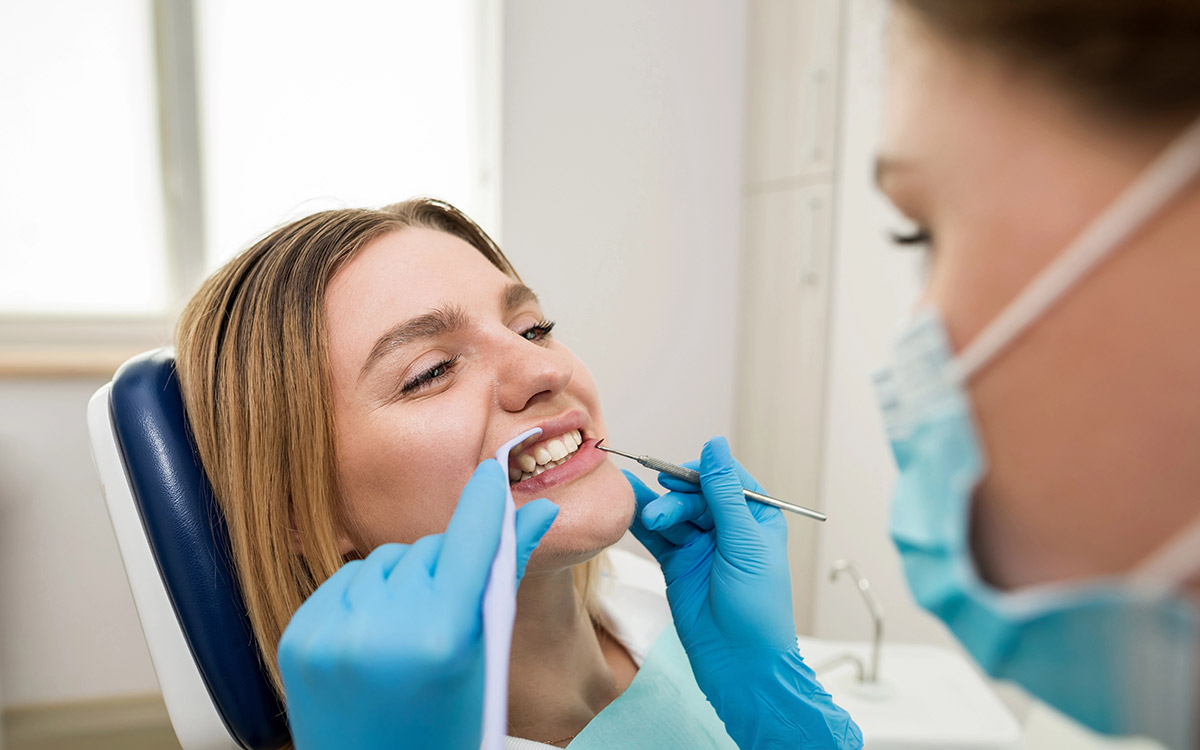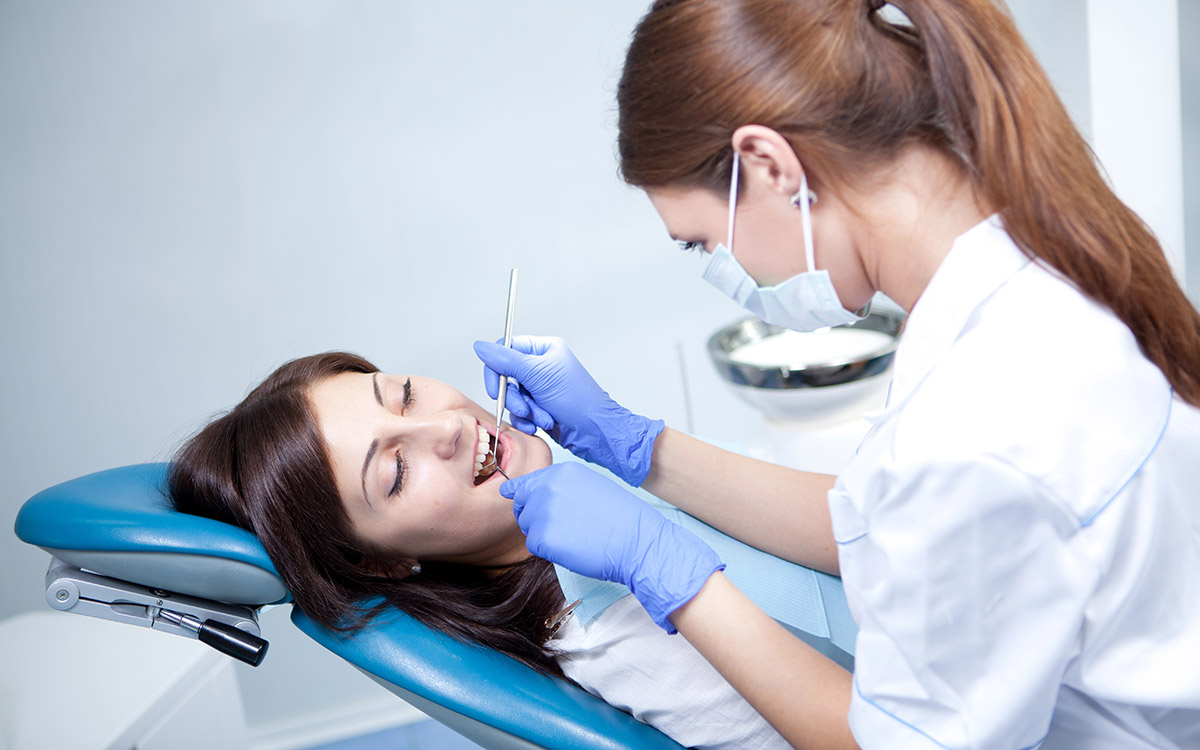Tooth sensitivity is a common dental condition, but it doesn’t have to become a big problem. According to the American Dental Association, one in four Americans suffer from some degree of tooth sensitivity. There are several ways to find relief if you have sensitive teeth and experience discomfort from eating cold foods or drinking hot liquids.
At the first sign of tooth sensitivity, you can begin treating it with these 10 best ways to treat teeth sensitivity.
Use an Electric Toothbrush
Electric brushes can help reduce plaque buildup by as much as 80 percent. According to studies by the American Dental Association, people who have switched from manual brushes to electric brushes have better oral hygiene. Electric brushes give you more control over how hard you brush your teeth, which helps reduce gum recession. If you don’t want to shell out for an electric brush, ensure that whenever you’re brushing manually, you use a soft-bristled brush and gently brush around sensitive areas like the gums or inside the cheeks where sensitivity tends to be worse than on other parts of the mouth.”
Use The Right Toothpaste
The best way to treat teeth sensitivity is to use toothpaste that contains fluoride and has been approved by the American Dental Association (ADA).
Fluoride is a mineral that strengthens teeth and helps prevent cavities from forming on the surface of teeth. Fluoride toothpaste protects against cavities by making the outer layer of the enamel more resistant to damage from plaque buildup in the mouth.
The product can be found in most grocery stores, drugstores, and online. If you have sensitive teeth, you should choose a toothpaste with a low abrasive rating, which will not scratch or erode your enamel like other brands.
Actively Protect Your Teeth
Tooth sensitivity is often caused by gum recession and loss of protective enamel. To prevent or reverse this process, you need to brush at least twice a day with fluoride toothpaste and floss daily to remove plaque and tartar from between your teeth. You should also see your dentist regularly for professional cleanings and checkups, as they can detect problems early on before they become severe or expensive to fix.
Avoid Acidic and Sugary Foods and Drinks
Acidic foods and drinks can cause damage to your enamel and expose your sensitive dentin underneath. These foods include citrus fruits, tomatoes, vinegar, and pickles. Also, limit coffee, tea, soda pop, and sports drinks, as they contain varying amounts of acid that can harm your teeth over time when consumed regularly. Drink plenty of water to help wash away acids from your mouth after eating acidic foods.
Also, practice eating foods high in calcium, fluoride, or phosphorous. These nutrients help strengthen tooth enamel.
Use a Desensitizing Toothpaste or Mouth Rinse
Desensitizing toothpaste and mouth rinses contain ingredients that help protect the enamel from acid damage by forming a protective coating over the surface of your teeth. You can use these products between professional cleanings and between regular dental checkups.
A dentist may prescribe a desensitizing mouth rinse to help you cope with extreme pain caused by severe tooth sensitivity. This rinse is available over the counter at drugstores or supermarkets without a prescription. It contains fluoride to prevent tooth decay and potassium nitrate to relieve the pain of sensitive teeth. Fluoride also strengthens enamel, which prevents acidic foods and drinks from eroding it.
Flossing
Good oral hygiene is the best way to treat teeth sensitivity. Brushing and flossing daily help reduce plaque and tartar buildup and remove food particles between your teeth. If you’re struggling with sensitivity due to tooth decay, gum disease, or dentin exposure, visiting your dentist regularly can help prevent further damage and promote healing.
Regular Dental Checkups
Regular dental checkups help your dentist identify any problems with your teeth early so they can be treated before they worsen or cause further damage.
During your visit, your dentist cleans your teeth and performs a visual exam. They also check for signs of tooth decay or gum disease that could contribute to your teeth sensitivity and advise on how to keep your pearly whites healthy and less sensitive.
The best way to treat teeth sensitivity is to find and treat the cause. The cause of tooth sensitivity can be a cavity, gum disease, or plaque buildup.
Maintain a Healthy, Well-Balanced Diet
Eating foods high in calcium and phosphorus can help prevent tooth decay. You should eat foods that strengthen the enamel on your teeth. The best way to get enough nutrients is by maintaining a healthy diet with plenty of fruits and vegetables and dairy products like milk and cheese.
You should also avoid eating too much sugar or drinking sugary beverages because they increase your risk of developing cavities.
Use a Soft-Bristled Toothbrush
Brushes with soft bristles are ideal for sensitive teeth as they don’t damage the enamel or irritate gums like hard-bristled brushes.
If you have sensitive teeth, you should brush them gently. Brushing too hard can cause more damage and make your teeth more sensitive.
Use a Mouth Guard at Night
If you grind your teeth at night, a mouth guard can help protect your teeth and gums from damage. You can get custom-fitted ones from your dentist or over-the-counter versions that fit into your mouth like a sports guard. They have an adhesive backing, so they stay in place during sleep, but if yours doesn’t work well or fits too tightly, use over-the-counter anti-inflammatory medication before bedtime.
Teeth sensitivity is a common and highly irritating problem, but fortunately, there are plenty of ways to fix it, whether you’re looking for an instant solution or a lasting routine. Teeth sensitivity is caused by different things, including tooth decay, gum disease, injury, or even an allergic reaction. The dentin underneath is exposed when the protective enamel covering your teeth wears away or breaks down. It makes it more sensitive to hot and cold temperatures and acidic foods and drinks. Some of the treatment methods are easy. However, it’s best to consult your dentist before trying new teeth sensitivity home remedies.







